Business
Trudeau gov’t to appeal federal court ruling that overturned ban on single-use plastics

From LifeSiteNews
‘Our government intends to appeal the Federal Court’s decision and we are exploring all options to continue leading the fight against plastic pollution,’ Environment Minister Steven Guilbeault announced
The Trudeau government is set to appeal the recent decision which ruled the plastics ban to be “unreasonable and unconstitutional.”
On November 20, Environment Minister Steven Guilbeault announced that the Liberal government under the leadership of Prime Minister Justin Trudeau will appeal the Federal Court’s ruling which overturned its ban on various plastics.
“Our government intends to appeal the Federal Court’s decision and we are exploring all options to continue leading the fight against plastic pollution,” Guilbeault said in a joint statement with Minister of Justice and Attorney General Arif Virani.
“We will continue working with provinces, territories, civil society, and industry to tackle this growing problem,” the statement continued.
Plastics harm our environment.
Our government will continue to lead the fight against plastic pollution.
Read Minister @viraniarif and my recent statement here 👇 pic.twitter.com/x7rCKjbgSa
— Steven Guilbeault (@s_guilbeault) November 20, 2023
Guilbeault’s comments come in response to a November 16 ruling by the Federal Court that determined that the Trudeau government overstepped its authority by classifying plastic as “toxic” and banning all single-use plastic items, like straws.
The decision came after a lawsuit filed a little over a year ago by Alberta and Saskatchewan. The ruling declared that listing all plastics on the List of Toxic Substances was too broad and “poses a threat to the balance of federalism as it does not restrict regulation to only those (plastics) that truly have the potential to cause harm to the environment.”
The court further reminded the Trudeau federal government of the autonomy of the provinces, saying, “Cooperative federalism recognizes that the provincial government and federal government are coordinate – the provinces are not subordinate to the federal government. A federal head of power cannot be given a scope that would eviscerate a provincial legislative competence.”
Essentially, the ruling overturned Trudeau’s 2022 law which outlawed manufacturing or importing plastic straws, cutlery, and checkout bags on the grounds of government claims that plastic was having a negative effect on the oceans. In reality, most plastic pollution in the oceans comes from a few countries, like India and China, which dump waste directly on beaches or rivers.
If not for the Federal Court’s ruling, the sale of these plastic products would have also been illegal by the end of this year.
“Canadians are rightly calling for action, because the rate of plastic pollution is unsustainable, threatening irreversible harm to the health of our natural world and humanity,” the memo claimed. “The accumulation of plastic pollution worldwide is nothing short of a crisis that has brought countries together to propose ambitious global solutions to this problem.
While Guilbeault claims to be responding to Canadians’ desire to reduce pollution, his statement, posted to X (formerly Twitter), has been received with ridicule from Canadians.
“Cope harder, Steven. Your air travel alone causes more pollution than plastic straws,” a Canadian Armed Forces combat veteran wrote.
Hahaha.
Cope harder, Steven. Your air travel alone causes more pollution than plastic straws.
— Muninn the Expert – Trust me (@Muninn18085831) November 20, 2023
“Hypocrites! Trudeau is responsible for the lions share of this [pollution],” another declared.
My statement here
👇🏽Hypocrites! Trudeau is responsible for the lions share of this. 🛫🛬🛫🛬🛫🛬🛫🛬🛫🛬🛫🛬🛫🛬🛫 pic.twitter.com/ckMuM2iAIt
— Mike (@midnightriderV2) November 20, 2023
Another pointed out that banning plastics, such as plastic grocery bags may not actually reduce pollution, saying, “I think plastic bags are quite useful. I carry stuff home in them, then I am able to use them as garbage bags, saving me from buying bags to do so. Also, they stop us from needing to chop down trees to make paper bags. Now I have to buy Glad kitchen catcher garbage bags. How does this help the environment again?”
I think plastic bags are quite useful. I carry stuff home in them, then I am able to use them as garbage bags, saving me from buying bags to do so. Also, they stop us from needing to chop down trees to make paper bags. Now I have to buy glad kitchen catcher garbage bags. How… pic.twitter.com/Naip2B7cs0
— Warren Irwin (@ItsWarrenIrwin) November 21, 2023
Business
Trudeau’s environment department admits carbon tax has only reduced emissions by 1%
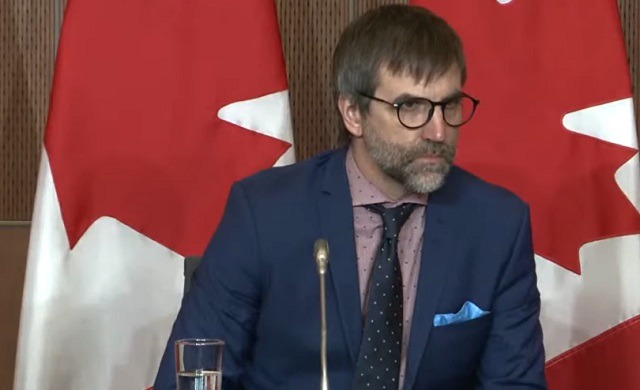
From LifeSiteNews
The Trudeau Liberals had first seemed to claim that the unpopular carbon tax had cut emissions by 33%, only to explain that the figure is merely a projection for 2030 and the actual reduction thus far stands at 1%.
The Liberal government has admitted that the carbon tax has only reduced greenhouse gas emissions by 1 percent following claims that the unpopular surcharge had cut emissions by 33 percent.
During a May 21 House of Commons environment committee meeting, Environment Minister Steven Guilbeault testified that the carbon tax cut greenhouse gas emissions by 33 percent, before his department backtracked to explain that the figure is a projection for the year 2030, and that the true figure sits at a mere 1 percent.
“I will be the first one to recognize it is complex,” said Guilbeault, according to information obtained by Blacklock’s Reporter.
“If you want simple answers, I am sorry. There is no simple answer when it comes to climate change or modeling,” he said, adding, “Carbon pricing works. This has never been clearer.”
“Carbon pricing alone accounts for around a third of emission reductions expected in Canada,” said Guilbeault, explaining this number was based on “complex statistical calculations.”
However, Conservative Members of Parliament (MPs) pointed out that the numbers provided by Guilbeault’s department do not add up to a 33 percent decrease in emissions, as the department had characterized.
“How many megatonnes of emissions have been directly reduced from your carbon tax since it was introduced?” Conservative MP Dan Mazier questioned.
According to Guilbeault, after the introduction of the carbon tax, emissions reduced by five megatonnes in 2018, fourteen megatonnes in 2019, seventeen megatonnes in 2020, eighteen megatonnes in 2021, and nineteen megatonnes in 2022.
However, the total tonnes of emissions reduced by the carbon tax comes to 73 million tonnes, or 2 percent, of the combined 3,597 million tonnes of emissions over the same five-year period, according to National Inventory Reports.
According to Blacklock’s, Guilbeault failed to explain how the environment department calculated a 33 percent benefit.
Conservative MP Michael Kram pressed Guilbeault, saying, “I want to make sure I have the math correct.”
“In 2022 emissions were at 708 megatonnes and the carbon tax was responsible for reducing 19 megatonnes,” he continued. “By my math that works out to a three percent reduction.”
Associate deputy environment minister Lawrence Hanson explained that the department’s 33 percent emissions cut is a projection of the emissions cut by 2030, not a current statistic.
“It’s the distinction between how much the carbon price might have affected emissions in one year versus how much in 2030,” said Hanson. “So when you heard us talking about its responsible for one third of reductions we were talking about the 2030 number.”
This explanation was echoed by Derek Hermanutz, director general of the department’s economic analysis directorate, who said, “When we talk about one third, it’s one third of our expected reductions. That’s getting to 2030.”
“Yes, but three percent of the total emissions have been reduced as a result of carbon pricing?” Kram pressed.
“No, emissions have declined three percent in total,” assistant deputy minister John Moffet responded.
“And so only one percent of that three percent is from the carbon tax?” Kram asked.
“To date,” Moffet replied.
Prime Minister Justin Trudeau’s carbon tax, framed as a way to reduce carbon emissions, has cost Canadian households hundreds of dollars annually despite rebates.
The increased costs are only expected to rise. A recent report revealed that a carbon tax of more than $350 per tonne is needed to reach Trudeau’s net-zero goals by 2050.
Currently, Canadians living in provinces under the federal carbon pricing scheme pay $80 per tonne, but the Trudeau government has a goal of $170 per tonne by 2030.
On April 1, Trudeau increased the carbon tax by 23 percent despite seven out of 10 provincial premiers and 70 percent of Canadians pleading with him to halt his plan.
Despite appeals from politicians and Canadians alike, Trudeau remains determined to increase the carbon tax regardless of its effects on citizens’ lives.
The Trudeau government’s current environmental goals – which are in lockstep with the United Nations’ 2030 Agenda for Sustainable Development – include phasing out coal-fired power plants, reducing fertilizer usage, and curbing natural gas use over the coming decades.
The reduction and eventual elimination of so-called “fossil fuels” and a transition to unreliable “green” energy has also been pushed by the World Economic Forum, the globalist group behind the socialist “Great Reset” agenda in which Trudeau and some of his cabinet are involved.
Economy
Prime minister’s misleading capital gains video misses the point
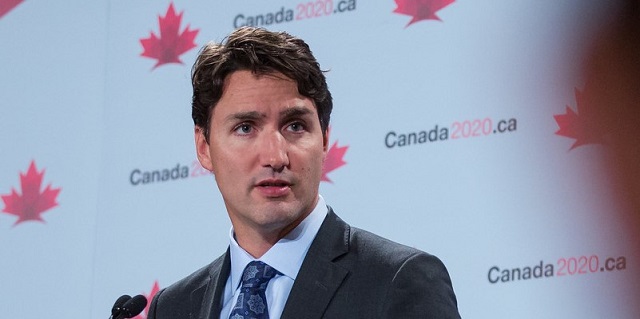
From the Fraser Institute
By Jake Fuss and Alex Whalen
According to a 2021 study published by the Fraser Institute, 38.4 per cent of those who paid capital gains taxes in Canada earned less than $100,000 per year, and 18.3 per cent earned less than $50,000. Yet in his video, Prime Minister Trudeau claims that his capital gains tax hike will affect only the richest “0.13 per cent of Canadians”
This week, Prime Minister Trudeau released a video about his government’s decision to increase capital gains taxes. Unfortunately, he made several misleading claims while failing to acknowledge the harmful effects this tax increase will have on a broad swath of Canadians.
Right now, individuals and businesses who sell capital assets pay taxes on 50 per cent of the gain (based on their full marginal rate). Beginning on June 25, however, the Trudeau government will increase that share to 66.7 per cent for capital gains above $250,000. People with gains above that amount will again pay their full marginal rate, but now on two-thirds of the gain.
In the video, which you can view online, the prime minister claims that this tax increase will affect only the “very richest” people in Canada and will generate significant new revenue—$20 billion, according to him—to pay for social programs. But economic research and data on capital gains taxes reveal a different picture.
For starters, it simply isn’t true that capital gains taxes only affect the wealthy. Many Canadians who incur capital gains taxes, such as small business owners, may only do so once in their lifetimes.
For example, a plumber who makes $90,000 annually may choose to sell his business for $500,000 at retirement. In that year, the plumber’s income is exaggerated because it includes the capital gain rather than only his normal income. In fact, according to a 2021 study published by the Fraser Institute, 38.4 per cent of those who paid capital gains taxes in Canada earned less than $100,000 per year, and 18.3 per cent earned less than $50,000. Yet in his video, Prime Minister Trudeau claims that his capital gains tax hike will affect only the richest “0.13 per cent of Canadians” with an “average income of $1.4 million a year.”
But this is a misleading statement. Why? Because it creates a distorted view of who will pay these capital gains taxes. Many Canadians with modest annual incomes own businesses, second homes or stocks and could end up paying these higher taxes following a onetime sale where the appreciation of their asset equals at least $250,000.
Moreover, economic research finds that capital taxes remain among the most economically damaging forms of taxation precisely because they reduce the incentive to innovate and invest. By increasing them the government will deter investment in Canada and chase away capital at a time when we badly need it. Business investment, which is crucial to boost living standards and incomes for Canadians, is collapsing in Canada. This tax hike will make a bad economic situation worse.
Finally, as noted, in the video the prime minister claims that this tax increase will generate “almost $20 billion in new revenue.” But investors do not incur capital gains taxes until they sell an asset and realize a gain. A higher capital gains tax rate gives them an incentive to hold onto their investments, perhaps until the rate is reduced after a change in government. According to economists, this “lock-in” effect can stifle economic activity. The Trudeau government likely bases its “$20 billion” number on an assumption that investors will sell their assets sooner rather than later—perhaps before June 25, to take advantage of the old inclusion rate before it disappears (although because the government has not revealed exactly how the new rate will apply that seems less likely). Of course, if revenue from the tax hike does turn out to be less than anticipated, the government will incur larger budget deficits than planned and plunge us further into debt.
Contrary to Prime Minister Trudeau’s claims, raising capital gains taxes will not improve fairness. It’s bad for investment, the economy and the living standards of Canadians.
Authors:
-

 Economy2 days ago
Economy2 days agoPrime minister’s misleading capital gains video misses the point
-

 Frontier Centre for Public Policy1 day ago
Frontier Centre for Public Policy1 day agoThe Great Canadian Hoax exposed
-

 International1 day ago
International1 day agoFormer GOP Republican Presidential Candidate Buys Activist Stake In Left-Wing Outlet
-
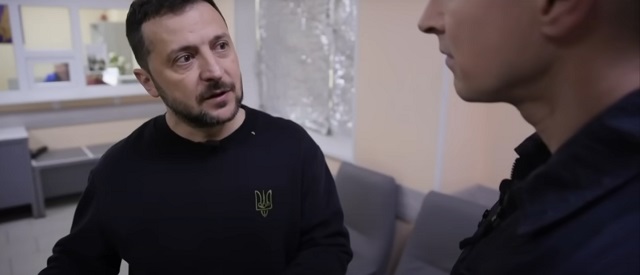
 conflict2 days ago
conflict2 days ago‘What’s The Problem?’: Zelenskyy Says NATO Needs To ‘Shoot Down’ Russian Missiles In Ukraine’s Airspace
-
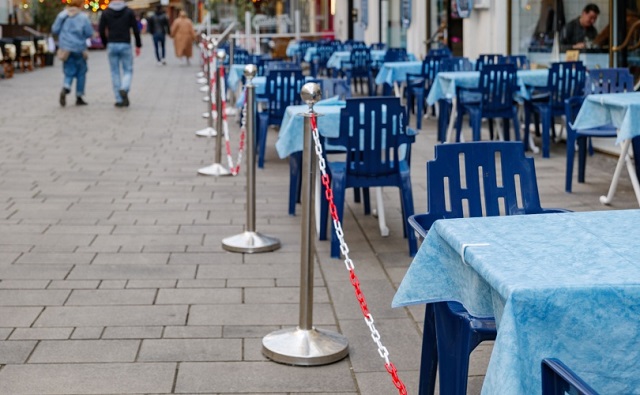
 COVID-191 day ago
COVID-191 day agoSaskatchewan appeals court upholds COVID-era gov’t restrictions on outdoor gatherings
-

 COVID-191 day ago
COVID-191 day agoBiden’s Navy secretary says he has ‘no regrets’ about firing 5,000+ unvaxxed sailors, Marines
-
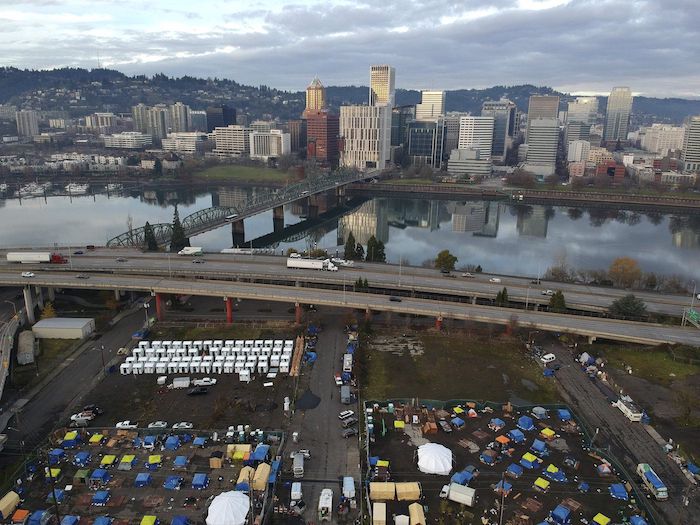
 Crime1 day ago
Crime1 day agoSoros-Backed DA Poised To Lose To Challenger In Ultra-Liberal County
-

 International24 hours ago
International24 hours agoNew bill would have exposed alleged conflicts in Biden, Trump presidencies







